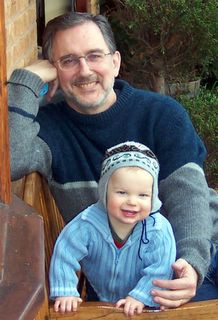It is gratifying to see the flood of international expressions of concern and compassion for those caught in the present Niger food crisis. However, I feel the need to explain more fully this year’s food shortage situation. Food shortage is nothing new to Niger. On average, over a ten-year period, only three years will yield adequate food for the nation. 2004 was one of those years where Niger’s ‘normal’ insufficient rainfall and harvest coincided with a broader West African food stock shortage. The subsequent exorbitantly higher grain prices are perhaps contributing more distress and suffering than any actual shortage of grain stocks.
FEWSNET (Famine Early Warning System Network) gives an excellent explanation of this dilemma in the paper, “NIGER: AN EVIDENCE BASE FOR UNDERSTANDING THE CURRENT CRISIS”, from which I have taken this quote:
"This food crisis is not just a temporary emergency. It is the predictable and inevitable result of inadequately- addressed chronic poverty in the world’s second poorest country. Although the willingness of much of the world to address these “famine” conditions in Niger is appropriate and welcome, without a similar commitment and prolonged attention to addressing the chronic issues that are at the heart of the current localized crises, the same problems will re-occur again soon."
SIM Niger has been actively involved in responding to this crisis since April, and we are continuing to expand our intervention as new needs come to our attention. SIM’s intervention to date has been three-fold:
1. Through food assistance and malnurished infant rehabilitation programs run by SIM’s two hospitals (Galmi & Danja) and two community health programs.
2. Through food assistance to our network of church partners and their infrastructures that stretch across the country.
3. Through food assistance via our SIM missionaries, in partnership with local churches and other organizations with whom we work.
Our philosophy of intervention focuses on the long term, not just the immediate crisis. As we evaluate those “chronic issues” cited above by FEWSNET, we recognize that appropriate answers can only come through appropriate education in all areas; health, academics, theology, technical training, etc. Fact: Niger has one of the lowest literacy rates in the world as well as one of the highest infant mortality rates. There is a connection between those two grim realities, and we believe appropriate education from a Christian perspective coupled with the Good News of Jesus Christ, in whose name we come, can introduce transformation and hope where there is currently despair. Thank you for helping give the opportunity for this to become a reality for all Nigeriens. Please pray too. That is the key to any real and lasting change.

1 comment:
Thanks for this excellent and informative post
Post a Comment